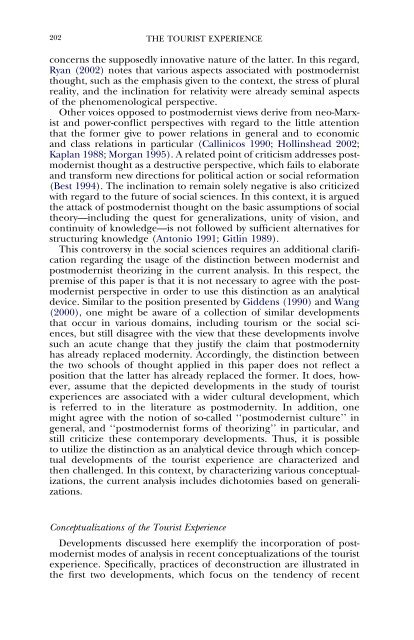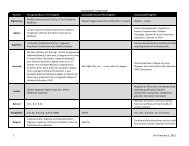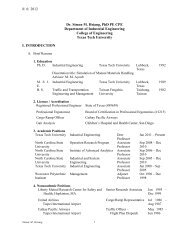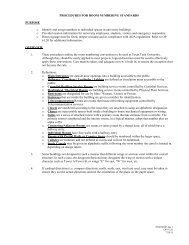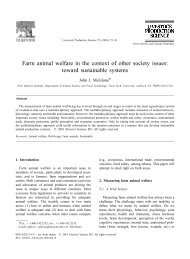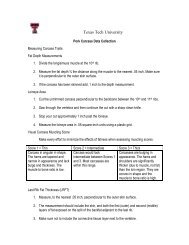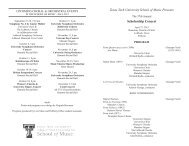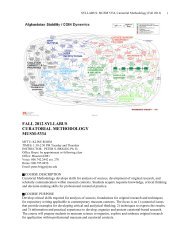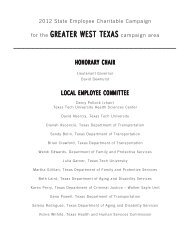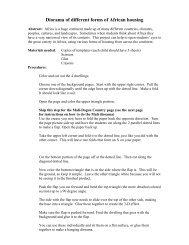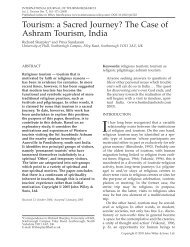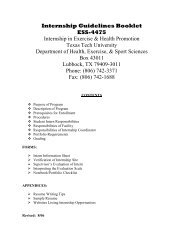Development of Tour Uriely 2005
Development of Tour Uriely 2005
Development of Tour Uriely 2005
Create successful ePaper yourself
Turn your PDF publications into a flip-book with our unique Google optimized e-Paper software.
202 THE TOURIST EXPERIENCE<br />
concerns the supposedly innovative nature <strong>of</strong> the latter. In this regard,<br />
Ryan (2002) notes that various aspects associated with postmodernist<br />
thought, such as the emphasis given to the context, the stress <strong>of</strong> plural<br />
reality, and the inclination for relativity were already seminal aspects<br />
<strong>of</strong> the phenomenological perspective.<br />
Other voices opposed to postmodernist views derive from neo-Marxist<br />
and power-conflict perspectives with regard to the little attention<br />
that the former give to power relations in general and to economic<br />
and class relations in particular (Callinicos 1990; Hollinshead 2002;<br />
Kaplan 1988; Morgan 1995). A related point <strong>of</strong> criticism addresses postmodernist<br />
thought as a destructive perspective, which fails to elaborate<br />
and transform new directions for political action or social reformation<br />
(Best 1994). The inclination to remain solely negative is also criticized<br />
with regard to the future <strong>of</strong> social sciences. In this context, it is argued<br />
the attack <strong>of</strong> postmodernist thought on the basic assumptions <strong>of</strong> social<br />
theory—including the quest for generalizations, unity <strong>of</strong> vision, and<br />
continuity <strong>of</strong> knowledge—is not followed by sufficient alternatives for<br />
structuring knowledge (Antonio 1991; Gitlin 1989).<br />
This controversy in the social sciences requires an additional clarification<br />
regarding the usage <strong>of</strong> the distinction between modernist and<br />
postmodernist theorizing in the current analysis. In this respect, the<br />
premise <strong>of</strong> this paper is that it is not necessary to agree with the postmodernist<br />
perspective in order to use this distinction as an analytical<br />
device. Similar to the position presented by Giddens (1990) and Wang<br />
(2000), one might be aware <strong>of</strong> a collection <strong>of</strong> similar developments<br />
that occur in various domains, including tourism or the social sciences,<br />
but still disagree with the view that these developments involve<br />
such an acute change that they justify the claim that postmodernity<br />
has already replaced modernity. Accordingly, the distinction between<br />
the two schools <strong>of</strong> thought applied in this paper does not reflect a<br />
position that the latter has already replaced the former. It does, however,<br />
assume that the depicted developments in the study <strong>of</strong> tourist<br />
experiences are associated with a wider cultural development, which<br />
is referred to in the literature as postmodernity. In addition, one<br />
might agree with the notion <strong>of</strong> so-called ‘‘postmodernist culture’’ in<br />
general, and ‘‘postmodernist forms <strong>of</strong> theorizing’’ in particular, and<br />
still criticize these contemporary developments. Thus, it is possible<br />
to utilize the distinction as an analytical device through which conceptual<br />
developments <strong>of</strong> the tourist experience are characterized and<br />
then challenged. In this context, by characterizing various conceptualizations,<br />
the current analysis includes dichotomies based on generalizations.<br />
Conceptualizations <strong>of</strong> the <strong>Tour</strong>ist Experience<br />
<strong>Development</strong>s discussed here exemplify the incorporation <strong>of</strong> postmodernist<br />
modes <strong>of</strong> analysis in recent conceptualizations <strong>of</strong> the tourist<br />
experience. Specifically, practices <strong>of</strong> deconstruction are illustrated in<br />
the first two developments, which focus on the tendency <strong>of</strong> recent


